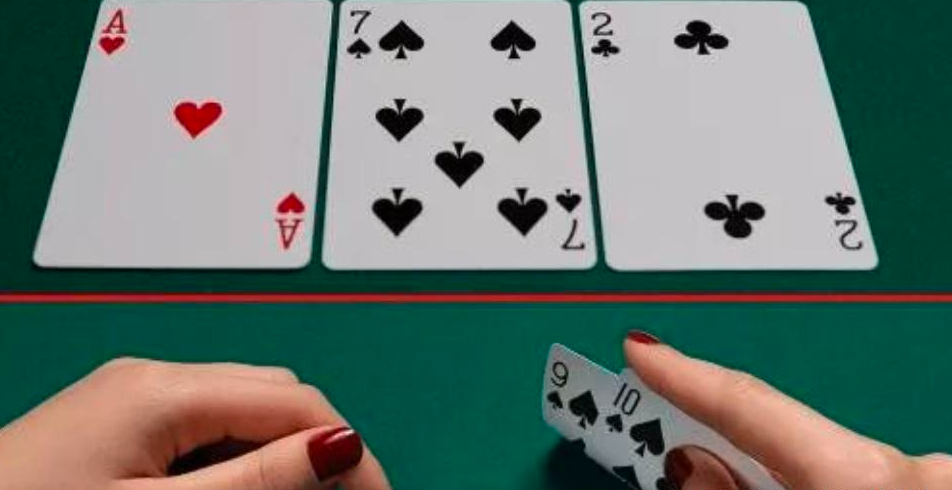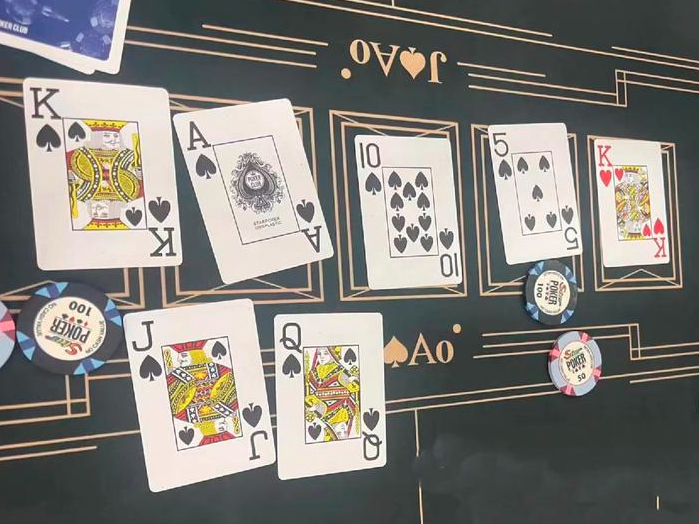The editor found a fascinating problem about Poker Game. Many 777d players don’t know how to deal with the situation after the flop; that is when their own cards don’t hit the flop, and they don’t know how to play when they get cards like AK KQ. And these players are very afraid of the flop. In fact, the editor also encountered this problem at that time. Today, I will share a topic with you. How do we fight against such opponents?

Give yourself confidence – 777d Poker Game.
This also has a literal meaning: don’t care about other people’s playing style and strategy. When you feel that your opponent is targeting you, this concept will go into your heart.
Then your game quality will become low because, in this state, we are prone to stress reactions, holding cards that are not in the plan and confronting the opponent; this is unwise; in fact, you should understand that the opponent is not targeting us, but he is aggressive in his play.
We should give ourselves enough patience and stick to our plan. Even if the opponent 3bets or raises, we should stick to our own range. As long as we have a little trump card, we should not be afraid, chase him, and find an opportunity to arrest the opponent. Play with patience;
when the opportunity comes, we will be very excited, and excitement will bring a better state, and then we can clear the opponent’s chips in one fell swoop. Believe in yourself, and you can get it done.
Call or even raise – 777d Poker Game.
There is a phenomenon in Texas Hold’em that when playing aggressively, the worst thing that can happen is that the opponent calls. So when we face aggressive opponents, we should not care too much, and we don’t even need to do too much.
Because aggressive opponents usually play many cards, as long as we get the cards within our playing range, we just call so that aggressive opponents will use unstable ranges to fight against our planned range. In this situation, the opponent is prone to problems, so we can win without fighting and get the final victory.
To sum up, the means of confrontation are straightforward. We call when we get the cards. The opponent will think about what our whole card range is. If the opponent is not sure and wants to eat this pot, the opponent will choose to raise to bluff us. If our hole card range is within the controllable range, we can follow directly and easily win this game.

Don’t give yourself psychological hints based on small data – 777d Poker Game.
In Texas Hold’em, most of the time, we don’t have sample data of our opponents. For example, when we compete with our opponents for the first time, they are always very aggressive. It is very likely that the opponent is really lucky today and has dealt a lot of solid cards.
So it is beneficial for him to choose to bluff at this time because everyone present is worried whether our cards can be more significant than the opponent’s. So, we should not put ourselves under psychological pressure based on these small data samples unless we have many records of the opponent’s games. It is generally okay to make decisions when there is enough data but forget about small data samples.
The data of just a few games can only prove something. To determine whether the opponent plays aggressively, we need to know the opponent’s cards in every hand, but this is impossible. So, in general, we don’t need to fight violence with violence, but we can play tighter so that the opponent has no more opportunities or use strong cards to go all-in on his 3bet. At this time, it is the opponent who is uncomfortable.
Probability of Aggressive Opponents – 777d Poker Game
Types of Aggressive Opponents in Poker
We can divide aggressive opponents into several types: tight over-bluffers, over-loose bluffers, and over-value bettors. There are almost no other aggressive opponents except these two categories. One is the bluffer who established his personality in the early stage, and the other is the novice and generous novice.
Tight over-bluffer
Continuous betting statistics: 60/70/70% (flop, turn, river) This type of player is the most important because this type of opponent is selective about his river lap value bet cards, which will cause the opponent to bet quite tight.
Loose Over-Bluffer
On the contrary, such an opponent’s hole cards are not so carefully selected because the opponent does not want to check back and show weakness when losing at a showdown. Therefore, the opponent will continue to raise with worthless cards, hoping to force his opponent to give up this round of cards through these means.
Over-Value Bettor
The objective problem of this type of player is that it creates an extremely distorted bluff-to-value ratio, and the number of bluffs in the betting range is far more than the value type. This results in an extremely interesting c-betting statistic.
Loose Overbluffer
Loose Overbluffer: c-betting statistic: 70/80/70% (flop, turn, river). This player is the opposite. Like the Tight Overbluffer, the Loose Overbluffer also has a skewed bluff-to-value ratio when betting. However, this player is not as tight when choosing value bets. This is usually caused by a lack of awareness of hand strength probabilities, which leads to over-value betting while over-bluffing.
Over-value Bettor
Over-value Bettor: c-betting statistic: 70/80/50% (flop, turn, river) This player is a bit like the Loose Overbluffer, but they are generally new players because they have no awareness of relative hand strength and over-value betting.
Therefore, over-value bettors tend to bluff less. Because this player has a high c-betting statistic, they present an image of an aggressive player who bluffs too much, but in fact, this player is c-betting with medium-strength hands (such as middle and bottom pairs). This type of player can also be understood as someone who relies on luck to play Texas Hold’em rather than using mathematics to play Texas Hold’em.

Conclusion
Dealing with an aggressive opponent is like dealing with a limper. An aggressive opponent is an easy opponent to play value against. We only need to wait for an opportunity because such players are usually profitable recreational players. They will actively invest many chips into the pot for us. If we make the correct exploitative adjustments and attack when the pot finally expands, we can win the whole game and become the final winner.
